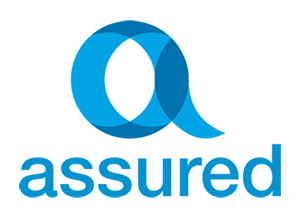Quick Application for Car Loans
Lending policies and interest rates are rarely found on lender websites. Unlike normal home loans, the pricing of a commercial property loan is rarely set in stone and many of the terms can be negotiated.
Australian banks and other commercial lenders each have their own risk profiles and maximum loan amounts.
Which lender is best for your commercial purchase depends on many factors.
Security For a Commercial Property Loan
Different types of security represent different risks to the banks. Standard commercial properties are usually the best type of security for a commercial property loan. Standard security is classed as having a wide appeal, is in a good location and is zoned as residential, commercial, industrial or mixed. While specialised commercial properties are more difficult to value and sell so they are a higher risk to the lender

Standard Commercial Properties
- Offices
- Factories
- Warehouses
- Retail spaces
- Shop fronts

Specialised Commercial Properties
- Aged care centres
- Farms / other rural properties
- Petrol stations
- Pubs/Hotels/Taverns
- Vineyards….
Commercial Property Loan Purpose
Commercial property loans that are used for business or investment purposes, with the exception of residential investment properties, are not regulated by the National Consumer Credit Protection (NCCP) Act.
This means that most commercial borrowers do not have the same protection as home buyers.
The purpose of your commercial property loan will affect how your loan is assessed:
- Investment (low risk): To buy or refinance a commercial property that will be leased.
- Owner occupied (medium risk): To buy or refinance a commercial property that is leased to or occupied by your own business.
- Working capital (high risk): Financing the day to day operations of your business or liquidity shortfalls.
- Other purposes: All other commercial, business or investment purposes are considered on a case by case basis, e.g. buying an insurance broking practice.
Remember, it isn’t what your commercial property loan is secured on that determines the purpose but what your loan is used for.
Be careful if you’re using a commercial property as security for a loan that is not used for business or investment purposes such as buying a house by using your office as additional security. In this case, the loan would be regulated under the NCCP Act and some commercial lenders would not be able to approve your application.
Proving Income for a Commercial Property Loan
As there is less legislation governing commercial property loans, the banks have more freedom with their lending policies.
In particular, they are not required by law to prove that a borrower can afford a loan. This has given rise to several income verification options:
- Full doc: This is a standard loan application where you provide full financial statements.
- Lease doc: You must prove that the income from the lease is more than the interest repayments.
- Low doc: You must provide partial income evidence such as an accountants letter, bank statement or BAS statements.
- No doc: You won’t need to no evidence that you can afford the debt.
- Forecasts: You must provide a profit and loss forecast showing that this loan will allow your business to earn additional income which will be sufficient to cover the repayments.
Of course, it is still good practice to lend to people that can afford to repay the commercial property loan! Don’t expect the banks to approve your loan if it represents a high risk. Non-bank and specialist commercial funders may consider a higher risk application such as a no doc loan.
Commercial Property Loan Features
What are the typical features of a commercial property loan?
- Full doc: Individuals, companies, trusts and self-managed superannuation funds are acceptable.
- Term: Up to 15 years (longer on application) or 30 years for residential security.
- Interest only: Up to 5 years (longer on application).
- Interest rate type: Variable, fixed (up to 5 years) or bank bill facilities.
- Additional repayments: Allowed on variable loans.
- Redraw: Allowed for amounts that you have pre-paid.
- Offset accounts: Normally not available.
- Line of credit (LOC): Available at higher interest rates.
- Capitalised interest: Available for development or land sub-division finance.
Each lender has their own target market, products and pricing so it is important to get matched with the lender that can accommodate your needs. This is where an experienced commercial mortgage broker can help.
